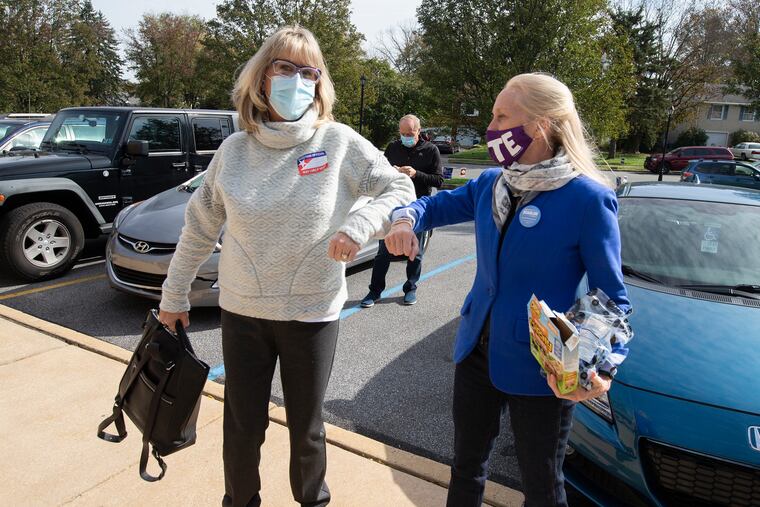Rep. Mary Gay Scanlon should hold Biden’s feet to the fire on regulatory agenda | Opinion
Efficient regulation is what Americans want.

In the midst of this long dark winter, it’s heartening to see the Biden administration lay out a bold agenda for a more secure, fair, and sustainable future. Holding the Biden administration to its promise to reform the regulatory process to “ensure swift and effective federal action” to “improve the lives of the American people” is a crucial part of that effort. From her perch on a key congressional committee with oversight over agencies and the rulemaking process, the Delaware Valley’s own Rep. Mary Gay Scanlon is well-positioned to do just that.
While not on most people’s radar, the system of centralized regulatory review poses a potentially significant obstacle to President Joe Biden’s ambitious agenda. Originally created by President Ronald Reagan, this process functions as the bureaucratic instantiation of the “job-killing regulations” myth that Reagan so successfully infused into the American political conversation and that politicians across the political spectrum parroted for decades afterward. The executive orders issued by both Democratic and Republican presidents to govern this process over the intervening decades reflected that false narrative—describing regulations as imposing burdens that need to be lifted and anointing economic efficiency as the singular goal of all government action.
» READ MORE: Joe Biden plans a flurry of executive orders, new legislation for first days as president
Rather than improving regulations or making them more efficient, the regulatory review process has served instead to delay, weaken, or block them outright. It accomplishes this primarily through a hyper-formalized version of cost-benefit analysis that favors monetizable costs to industry over difficult-to-quantify benefits, such as clean air and safe drinking water, and obscures issues of distributional equity and fairness.
In one of his first executive orders, Biden wisely rejected that approach. Instead, he presented a new vision of government as a power to be “mobilized” to confront the pressing challenges of the day. Dispensing with old tropes about relieving burdens on industry, this new vision instead recognizes the indispensable role of regulations in “tackling national priorities,” “promot[ing] the public interest,” and “improv[ing] the lives of the American people.”
To ensure agencies can realize this vision, Biden’s order initiates a much-needed overhaul. It directs agencies and the White House Office of Information and Regulatory Affairs to develop recommendations for remaking the regulatory review process with the aim of “ensur[ing] swift and effective federal action.”
As with all things political, the devil will be in the details. But recent polling released by Data for Progress and the Center for Progressive Reform should stiffen the Biden administration’s resolve to implement the bold reforms promised in its high-minded, ambitious order. The poll paints a picture of an American electorate hungry for Biden’s vision of government. One key finding: If forced to choose, likely voters would favor taking action to fight climate change and passing down a livable planet to future generations over economic growth by a 57-point margin.
The same poll finds that a majority of voters (58%) back stronger health and safety regulations even if it means giving up some economic growth. This finding counsels strongly in favor of a drastic overhaul of the practice of cost-benefit analysis with its myopic focus on market efficiency.
» READ MORE: Pa. Rep. Mary Gay Scanlon pushes to make intimidation of elections officials a federal crime
One particularly contentious aspect of that practice is the application of a “discount rate” to future benefits, so that the lives of future generations are valued at a tiny fraction of the value assigned to current generations. The new poll shows American voters flatly reject that approach. Sixty-five percent of respondents agreed that “regulators should weigh the value of a regulation’s benefits for future generations the same as for present generations.”
In her oversight role, Scanlon can help empower the Biden administration to deliver on its promises, including providing effective safeguards for the fenceline communities in South Philly and Chester that have for too many years borne the toxic legacy of the Philadelphia Energy Solutions refinery and other industrial facilities. Overhauling regulatory review is crucial to advancing Biden’s priorities, especially those — like environmental justice — that matter to Scanlon’s constituents.
Amy Sinden is a professor of law at the Temple University Beasley School of Law and a Board member at the Center for Progressive Reform.